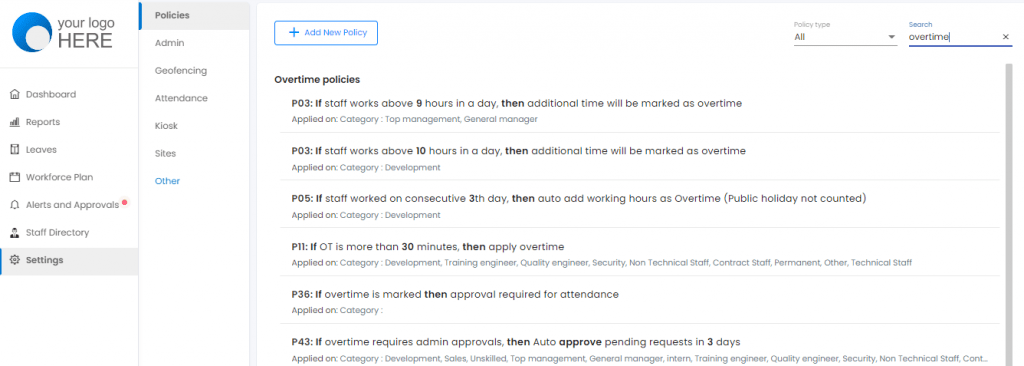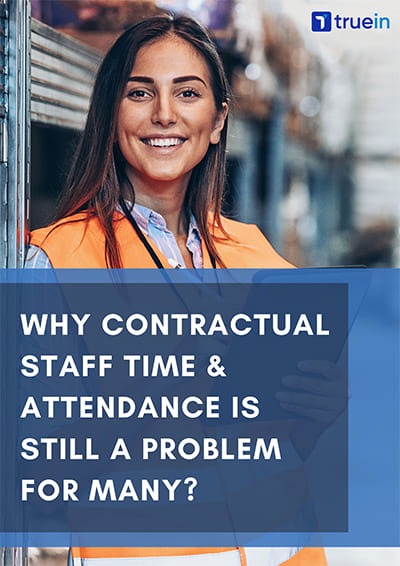As a business owner or manager at a large organization, you might often have to deal with employees who are late to work. To ensure proper time management and discourage unproductive behavior in the workforce, you must know how to handle late employees.
This responsibility requires you to be ready to handle difficult situations where you must take necessary steps to stop their tardiness quickly. It becomes mandatory, primarily if the tardiness of a few employees is disrupting daily workplace activities resulting in conflicts among workers.
But you must be careful and wisely decide how to handle employees late for work. It is only sometimes on purpose, and there may be unknown circumstances for continuous tardiness. Your worker might have childcare or medical responsibilities, which is why they are always late.
Even hostile work environments or workplace bullies can also be the cause. Ultimately, as a manager, it is your responsibility to deal with latecomers at work, irrespective of the reason. For some businesses, a late workforce can wreak havoc, as a survey by the Heathrow Express found.
According to the study, employee lateness costs the UK economy around £9 billion annually. It was noticed that traffic-related issues were responsible for 41% of tardiness cases, closely followed by transportation delays (29%) and unforeseen circumstances (25%).
Table of Contents
Seven tips for dealing with late employees
Now that we understand that tardiness, if not appropriately addressed, can result in severe consequences for your business, it’s essential to provide tips on handling an employee who is always late.
Let’s get started.
1. Talk to them as soon as possible
As soon as you notice a pattern of tardiness, speak to the worker without delay. It is essential to be proactive in addressing the situation to set a clear tone that this kind of behavior will not be accepted in the workplace. Often, managers ignore a worker’s excessive tardiness long enough that they eventually react in anger.
When you are responsible for your team, it is plausible that you will lose your cool and respond in a manner that can be termed as threatening to the employee. We don’t want that. Workers must be encouraged to discontinue arriving late continuously at work. However, it must be done strategically.
You must schedule a time to talk with them at work face to face. Ensure that you have documentation of the worker’s tardiness when confronting them about the issue. It would help if you started a dialogue by asking them why they report late to work.
2. Set your expectations clearly
Employee lateness is an inevitable part of owning a business or running a company. To minimize the chances of uncomfortable confrontations with workers who are always late, you can set the expectations clear from the beginning. You must inform the staff members of what is expected of them and that they know the shift timings and potential disciplinary actions that can be taken if they are chronically late.
The easiest way to convey this information is to mention it in your company’s attendance policy. When employees are aware of the company’s stance on punctuality and have been chronically late to work can affect their employment, there are more likely to abide by work timing requirements.
The habitually late employees should be informed that they must change their behavior or face disciplinary actions per the company policies. Again, it would help if you made facts available using dates and times when the worker was late. This will ensure there is understanding in communication.
3. Create a late-coming policy
While you can include information about tardiness and the resulting consequences of your company’s attendance policy, maintaining a separate late-coming policy is much more effective.
It would help if you used the late-coming policy to outline rules for being on time, including expectations for where the workers should clock in. This policy should be comprehensive and highlight the number of times an employee can be laid before it becomes an actionable offense resulting in disciplinary action from the management.
Furthermore, detailed information about the corrective actions that will be taken to handle employees late for work must be included. While discussing with a worker who is constantly tardy at work, share this information in an email and other documents highlighting the consequences.

4. Be open to listening to the reason and providing assistance if needed
There may be valid reasons why a worker is late regularly. Before concluding, ask the right questions to determine the root cause of the issue. Companies that lack employee engagement or recognition of fun deal with tardiness. Ensure that you are not committing the same mistake.
Allowing workers to pitch in their voices and, if the reasons are genuinely concerning, then work on solutions to troubleshoot the issue. It is not only about how to handle late employees but how to tackle the reason behind such behavior.
5. Praise them when their behavior is improved
If you notice an improvement in their behavior, offer praise. You must do it privately to avoid drawing attention to the issue or the progress. Acknowledgment is a great motivator, and when you compliment the employee for dropping their tardiness, you reinforce their positive behavior.
As a proactive step, you can offer monthly/yearly rewards to your employees or setup an employee recognition program. Punctual and taking their jobs seriously. There is a psychological impact on chronically late employees when they see their coworkers receiving rewards for their punctuality. This approach encourages late employees to be on time.
6. Allow flexible work schedule
Flexibility in the work schedule can be an option to handle employees who were offered late for work. For instance, you can decide when a worker can clock in. Suppose you allow workers to come in late by 30 minutes, then make it a policy that they have to work 30 minutes more to complete their shift.
This flexibility in the work schedule will allow the scope to accommodate reasons such as traffic and public transportation issues. It will also build mutual respect and understanding between the employer and employees. The level of flexibility you can offer will depend on your business model, but every company should offer this option.
“Get centralized and foolproof Time & Attendance for your organization”
Book a Free Demo Now
7. Use attendance system
Ultimately, you can use good employee time-tracking software to recognize any patterns of tardiness in the workforce quickly. An efficient employee time and attendance tracking software can help you keep track of your employees’ work time and find out how frequently they are late to work.
Truein is one such efficient employee time and attendance management system. It is a cloud-based, hardware-independent solution for tracking employee time. You can use Truein to track the time and attendance of full-time employees and contractual and distributed workers.

It supports policy creation and has 70+ policy templates you can customize per your company’s requirements. Schedule a free demo today and automate the leave and attendance management in your organization.
What disciplinary action you can take on late employees?
Disciplinary action for late employees can vary depending on the policies and procedures of the company. Here are some common steps that may be taken:
- Verbal Warning: The first step may be to give the employee a verbal warning, reminding them of the company’s expectations and their lateness’s impact on the organization.
- Written Warning: If the employee continues to be late, a written warning may be issued. This document should include details about the employee’s delay, the consequences of continued lateness, and a timeframe for improvement.
- Suspension: If the employee’s tardiness persists, a suspension may be necessary. This could be for a short period, such as one or two days, or longer, depending on the severity of the situation.
- Termination: If the employee’s lateness continues despite previous disciplinary actions, termination may be the only option. This should be a last resort and only be taken after all other options have been exhausted.
It’s important to note that any disciplinary action should be taken under the company’s policies and procedures, and all employees should be treated fairly and consistently. Additionally, the focus should always be on correcting the behavior and improving performance rather than punishing the employee.
Conclusion
It is always challenging to handle chronically late employees. However, to ensure positive work culture and prevent a negative impact on the bottom line, it is essential to know how to handle late employees. You must follow through with the tips shared in this guide. You must execute the disciplinary actions consistently if the worker fails to correct their behavior.
















